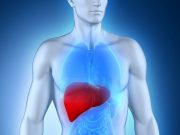SABCS: Some Older Women With Breast Cancer May Opt to Skip RT
Local recurrence increased but overall survival at 10 years similar with omission of RT in older women with HR+ breast cancer
SABCS: Pregnancy Less Likely After Breast Cancer Diagnosis
Disease-free, overall survival better for breast cancer patients with versus without subsequent pregnancy
Depression Linked to Suicidal Ideation Among Physicians
After adjustment for depression, no increased odds of suicidal ideation in association with burnout
ASH: CRISPR-Cas9 Gene Editing Promising in TDT, SCD
Total hemoglobin, fetal Hb increased in seven patients with transfusion-dependent ß-thalassemia, three with sickle cell disease
Prostate Cancer Pathology Not Worse With Delayed Surgery
Delayed radical prostatectomy not linked to higher risk for adverse pathological outcomes in high-risk prostate cancer
HFE Hemochromatosis May Up Risk for Liver Cancer in Men
Risk for incident primary hepatic malignancy and death increased among men with HFE p.C282Y homozygosity
Lack of Sleep Tied to Physician Burnout, Medical Errors
Risk for self-reported clinically significant medical error increases with severity of sleep impairment
Genetic Ancestry Tied to Lung Cancer Mutations in Latin Americans
Mutation frequencies of EGFR and KRAS were 30 and 10 percent, respectively, and 23 and 13 percent, respectively, for Mexican and Colombian patients
ASH: CRISPR-Cas9 Gene Editing Promising in TDT, SCD
Total hemoglobin, fetal Hb increased in five patients with transfusion-dependent ß-thalassemia, two with sickle cell disease



















